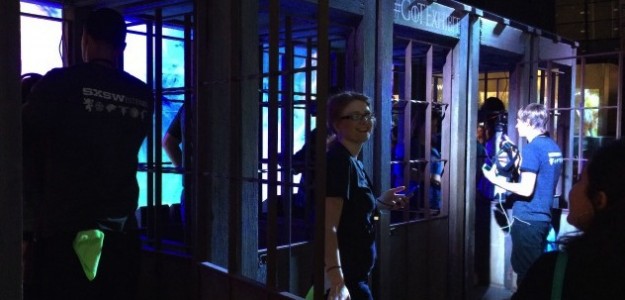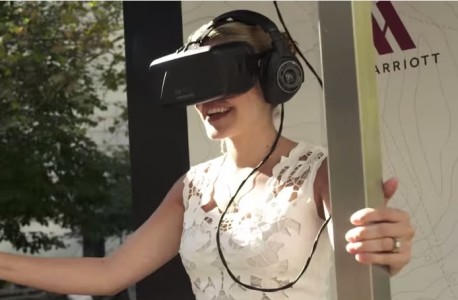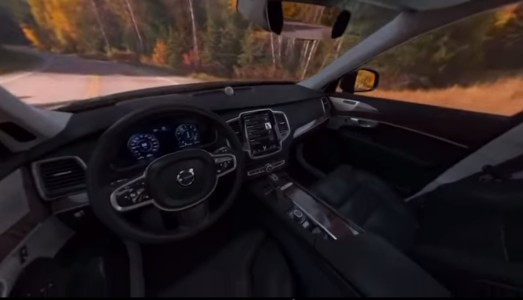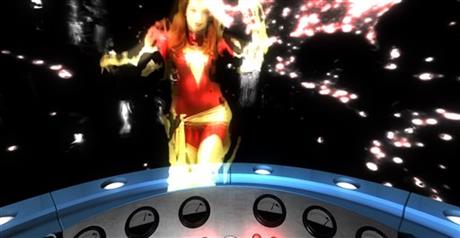You may have seen the recent flood of announcements from companies jumping on the virtual reality bandwagon. Movie studios, hotel chains, car companies are releasing virtual experiences at a furious pace.
Most people are either excited or confused by all the attention, but a few have been upset at the commercialization of virtual reality and the the way its been drawing attention away from the smaller developers who had been making unique, personal and idiosyncratic experiences.
And yes, it is true that there are people would prefer to check out, say, an experience based on a big-budget upcoming movie, than one made by somebody they never heard of.
While the big guys were still ignoring virtual reality, indie developers were the only game in town. And now they’re not, and it sucks to be them.
But it’s not necessarily bad for virtual reality in general.

1. The big brands bring in big audiences
Who wouldn’t want to visit the world of Game of Thrones? Become one of the X-Men? Ride inside one of the giant robots from Pacific Rim? Or float through the spaceship from Interstellar?
Those exhibits really bring in the crowds.
Meanwhile, the last Oculus Rift demo I saw, an unfinished indie game where you got to swimming with some sharks, brought in a handful of people to a MeetUp, mostly other indie developers.

2. The big brands really pay attention to comfort
If someone gets nauseous while they’re trying out an indie game — like I did with those sharks — I blame the technology, or the developer. It might put them off virtual reality for a while, but it’s not actually going to cost anyone any money.
If people get nauseous while virtually test-driving a Lexus, it could cost the company some serious money. You really don’t want your brand to be associated with vomit.
So the folks making the demos for Lexus, for Volvo, for Marriott, they’re all extra careful about making the experience as smooth and comfortable as possible.
Which means that the folks experiencing virtual reality for the first time through these demos won’t get sick.

3. The big brands pay attention to quality
The folks doing the Ascend the Wall virtual reality demo for Game of Thrones have a mocked-up elevator and wind machines to make the experience as realistic as possible.
The brands want really impress their users. They put money into graphics and props and computer hardware — whatever it takes to make the experience really great.
By comparison, many of the indie demos out are unfinished “proofs of concept.” Yes, they’re clever, and innovative, and some really push the boundaries of development — but they’re most interesting to other developers and to the die-hard virtual reality fans who are rushing to get their hands on everything they can.

4. The commercial demos are usually short
Virtual reality is an acquired taste, and its best acquired a few minutes at a time over a long stretch. You don’t want someone’s first experience to be an hour in a headset — that would make anyone sick.
But a few minutes here, a few minutes there, and before they’re know it, they’ve pretty much they’ve got their virtual reality legs all set.

5. The commercial demos are usually heavily promoted
When a big brand spends a lot of money on a virtual reality experience, they’re going to want to get the most use out of it, getting it out in front of as many people as possible. Some brands, like Game of Thrones, and the Marriott hotel chain are taking these virtual experiences on the road.
Others, like Volvo, are actually giving away free headsets.
Marketing is one of the most difficult jobs there is — much more difficult than building the technology in the first place. If you don’t believe me, look at the all the great products that never got traction in the market.
But the big brands know how to market. In fact, you could say that, by virtue of having become a big brand, they obviously have marketing as a core competence. Now they’re using these powers to promote virtual reality.
Good for them!
- OSgrid back online after extended maintenance - April 16, 2025
- Analysts predict drop in headset sales this year - March 25, 2025
- OSgrid enters immediate long-term maintenance - March 5, 2025
